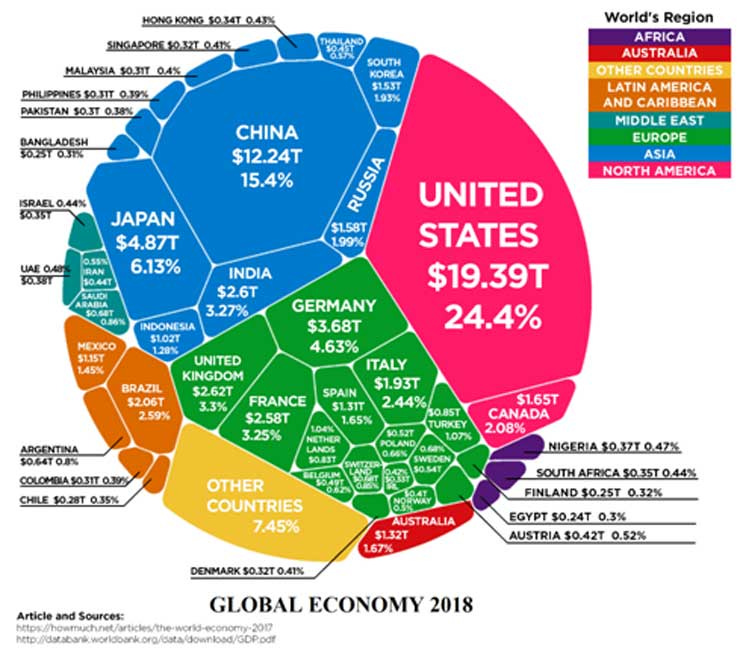The Role of Companies and the Evolution of Great Power Competition
This week we look at how a hedge fund once seized an Argentine warship in a dispute over government debt and discuss how the power and role of companies have changed in recent times.
The Role of Companies and the Evolution of Great Power Competition (3 min)
How has the evolution of great power competition changed the role of companies?

In 2012, the U.S. based hedge fund NML Capital convinced a judge to allow them to seize an Argentine navy vessel docked in Ghana. At the time they owned over $1 billion worth of Argentine debt that the government had defaulted on. Although the U.N. eventually intervened and secured the release of the warship (pictured above), NML Capital later also received its payment in full (and made a handy profit since it had bought the debt at a deep discount right before the default). The last time Argentina had lost a naval vessel was during the Falkland War in 1982 when a torpedo from a British nuclear-powered submarine sank the ARA General Belgrano.

Political science defines force projection as the capacity of a state to deploy and sustain forces outside its territory. In a world where companies can seize warships, sue nation-states, and exert total control over entire industries, it's not far fetched to think that the balance of power has shifted from military might to economic heft. The battlegrounds of the 21st century have been defined by countries leveraging their economic power (through companies within their borders) to exert pressure on their rivals.
When the U.S. decided to apply pressure on China during the opening salvos of the trade war, one of its most high profile actions was to starve two Chinese companies (Huawei and ZTE) from accessing critical components (made with American technology) that they needed in order to function. When Putin wanted to demonstrate the amount of leverage he held over Ukraine during a period of particularly frosty relations in 2009 he ordered the Russian company Gazprom to sharply reduce the supply of gas that they sold to the country, leaving tens of thousands unable to afford to heat their homes during the Christmas and New Years holidays.

Pictured above is the historical weather data during the Gazprom gas shutoff. (-12 degrees Celcius is ~10 degrees Fahrenheit).
As we move into a multi-polar world (one in which China, Russia, and India become increasingly assertive over their respective regions) the strength of a nation will increasingly be measured by its ability and willingness to leverage its companies for geopolitical leverage. The distinction between state and company is already blurring (look at subsidies, the blocking of foreign investment in certain sectors, and surveillance), and the advantages of such actions will only continue to increase. China has been most explicit in its distinction between state and company (no distinction exists), while the United States has yet to take a consistent stance on the issue.

Are companies destined to become organs of the state or will they be able to continue their pursuit of profits in the global economy of the future? While I'm hopeful for the latter, I think it's clear that each country will have to make tough tradeoffs with respect to these two items. In either case, one thing is clear: companies are now so powerful they can no longer hide behind the aegis of the free market.
In Other Words
Companies have been co-opted by the nations they reside in as tools to wage geopolitical battles without risking traditional military forces. As we move into a world where the cost of conventional war becomes higher for the biggest countries, economic leverage will continue to gain importance. Countries are already using their companies to great effect and this raises questions about the relationship between state and industry. Ultimately, it seems likely that U.S. companies will be forced to make suboptimal economic decisions to advance the aims of the country.
How satisfied were you with this week's issue?
Let me know what you think in this 3 question survey
Thanks for making it this far and I hope you found these answers as interesting to read as I found them interesting to write. If you liked what you read, feel free to like, comment, or share it with someone who you think will enjoy it.
As always,
Roosh → You


It appears NML Capital convinced a foreign gvmt to act on its behalf and secure its commercial interests, at the expense of another gvmt. That is a bit different from your conclusion that gvmts will use commercial entities to wage non-military coercion moving forward. It seems NML Capital actually achieved the opposite.